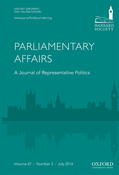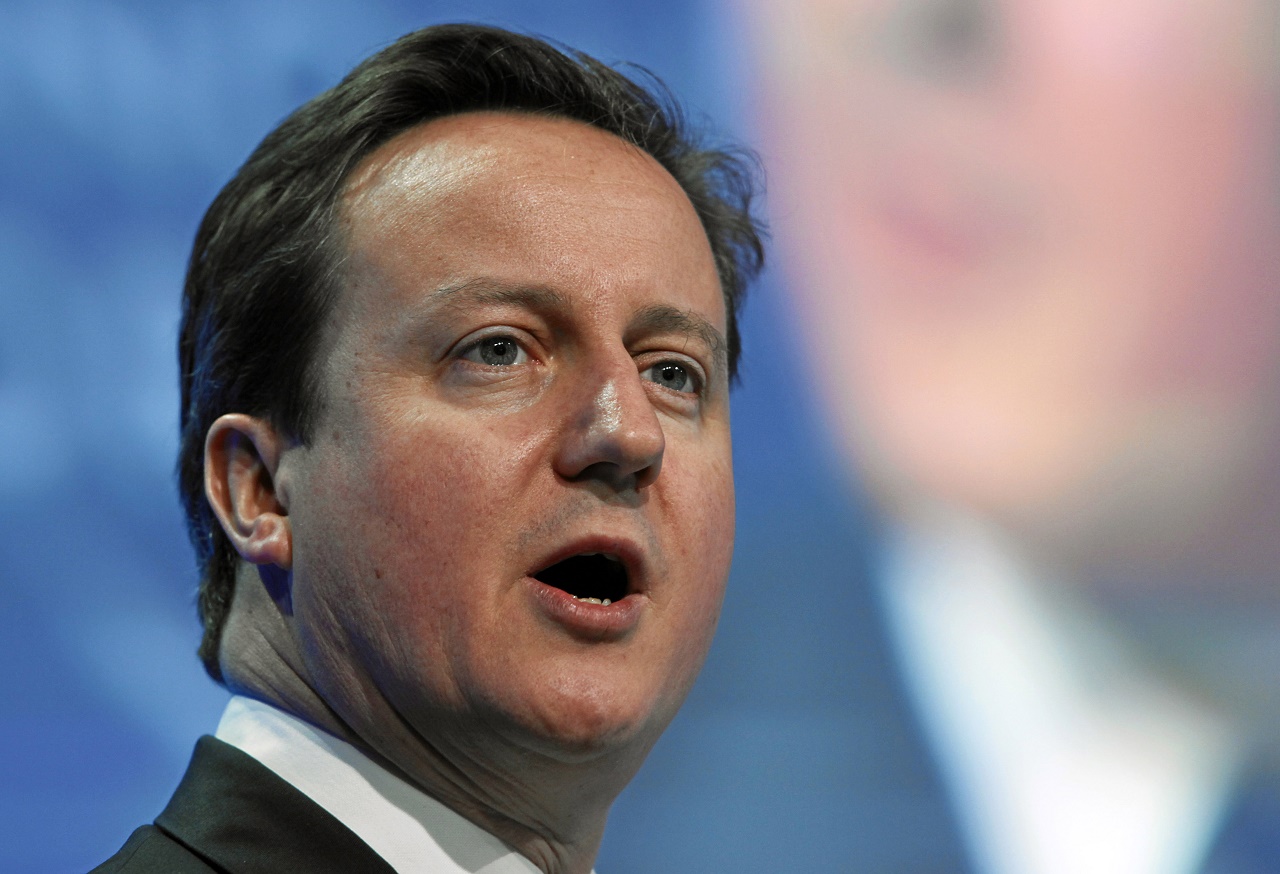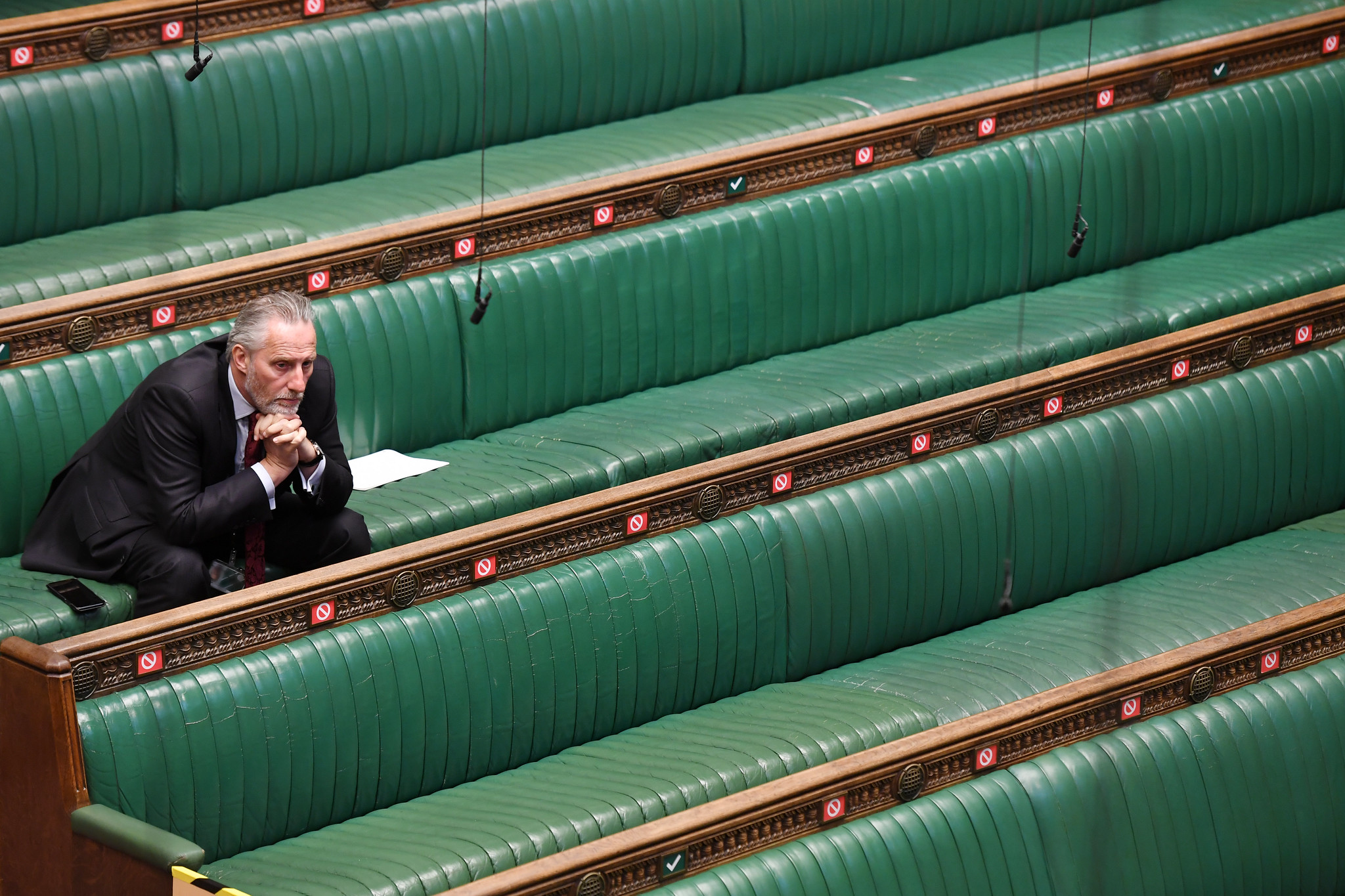How have the British political party leaders performed during austerity? What is a fair way of assessing them? Dr. Toby James and Dr. Jim Buller have recently edited a special issue of Parliamentary Affairs, based on a University of East Anglia workshop that addresses these questions.
The Great Financial Crisis of 2007-8 created a political headache for leaders world-wide. It is considered by many economists to have been the worst since at least the Great Depression. It led to many leaders having to campaign for (re)election and govern with significant public deficits, stagnant growth and public unrest.

The headache was particularly acute for British party leaders. A banking crisis, ‘credit crunch’ and major recession followed. Gordon Brown was faced with the collapse of Northern Rock and a downturn in economic fortunes that could undermine his credentials for economic management, only months after taking office from Tony Blair in 2007. David Cameron and George Osborne, whose Conservative Party came to power in 2010 in Coalition with the Liberal Democrats, inherited a budget that many thought required tax rises, public spending cuts or both. They were also to govern during a continued period of turbulence in the international economic environment, especially within the Eurozone. Ed Miliband, elected as Labour Party Leader in September 2010, was faced with the challenge of forming an opposition to Cameron and Clegg, with his prospects for electoral victory likely to be affected by Labour’s newly ta rnished reputation for economic management.
rnished reputation for economic management.
Who was successful? Who was not? Did the crisis positively or negatively affect the leaders’ prospects of winning and/or maintaining the Prime Ministership? What other challenges did they face? In more general terms, how can we gauge each leader to have been successful or otherwise? What yardsticks or frameworks should we use? How can or should we factor the contextual circumstances that leaders face, such as the effects of the crisis, into our judgements of them?
We have just edited a special issue of Parliamentary Affairs which includes articles that addresses this issue. The collection of articles, drawn from a workshop at the University of East Anglia, all focus on the capacity of leaders to win and maintain power during these difficult times. They provide case study assessments of political leaders during times of austerity in Britain and advance the range of available methodologies for assessing political leaders and factoring context into this assessment.
 In ‘Integrating Structural Context into the Assessment of Political Leadership: Philosophical Realism, Gordon Brown and the Great Financial Crisis’ Jim Buller and Toby James, build on their earlier development of the statecraft approach, propose a theoretical framework for conceptualising the challenges changes that leaders face. This requires that we are sensitive to, among other things, the nature of capitalism and changes within it when assessing political leaders. There is a risk that transformations, like the financial crisis, can throw the political fortunes of leaders off course, and we should ‘reward’ leaders who successfully navigate such choppy waters in our assessments. Using this approach they argues that Gordon Brown did exceptionally well in adjusting to such a difficult set of economic problems and should be given more credit than he has received so far.
In ‘Integrating Structural Context into the Assessment of Political Leadership: Philosophical Realism, Gordon Brown and the Great Financial Crisis’ Jim Buller and Toby James, build on their earlier development of the statecraft approach, propose a theoretical framework for conceptualising the challenges changes that leaders face. This requires that we are sensitive to, among other things, the nature of capitalism and changes within it when assessing political leaders. There is a risk that transformations, like the financial crisis, can throw the political fortunes of leaders off course, and we should ‘reward’ leaders who successfully navigate such choppy waters in our assessments. Using this approach they argues that Gordon Brown did exceptionally well in adjusting to such a difficult set of economic problems and should be given more credit than he has received so far.
 In ‘Austerity as Statecraft’ Andrew Gamble assesses George Osborne’s political strategy. He argues that the financial crash actually offered an opportunity for the Conservatives to develop a new statecraft strategy for winning elections. The crisis offered them the opportunity to ‘take back the mantle of economic competence from the Labour party… for the first time since the ERM debacle in 1992’. Whatever the economic merits (or otherwise) of Osborne’s response to Britain’s economic challenges, his management was politically astute statecraft. By skilfully playing the austerity narrative Osborne kept Labour on the back foot.
In ‘Austerity as Statecraft’ Andrew Gamble assesses George Osborne’s political strategy. He argues that the financial crash actually offered an opportunity for the Conservatives to develop a new statecraft strategy for winning elections. The crisis offered them the opportunity to ‘take back the mantle of economic competence from the Labour party… for the first time since the ERM debacle in 1992’. Whatever the economic merits (or otherwise) of Osborne’s response to Britain’s economic challenges, his management was politically astute statecraft. By skilfully playing the austerity narrative Osborne kept Labour on the back foot.
 In ‘The Limits to Prime Ministerial Autonomy: Cameron and the Constraints of Coalition’ Mark Bennister and Richard Heffernan provide an assessment of David Cameron premiership rooted in their previous work on prime ministerial power. This explains how a prime ministers power waxes and wanes over time by identifying their personal and institutional resources. The twin constraints of having to work in coalition with the Liberal Democrats and having a large segment of the Conservative parliamentary party hostile to his political agenda were the key constraints facing Cameron. This had the effect of constraining his authority within the executive and his autonomy from his parliamentary party. As a result, Bennister and Heffernan argue that Cameron has failed to be a predominant prime minister, often unable to fully assert himself on either his party or government, like Thatcher or Blair.
In ‘The Limits to Prime Ministerial Autonomy: Cameron and the Constraints of Coalition’ Mark Bennister and Richard Heffernan provide an assessment of David Cameron premiership rooted in their previous work on prime ministerial power. This explains how a prime ministers power waxes and wanes over time by identifying their personal and institutional resources. The twin constraints of having to work in coalition with the Liberal Democrats and having a large segment of the Conservative parliamentary party hostile to his political agenda were the key constraints facing Cameron. This had the effect of constraining his authority within the executive and his autonomy from his parliamentary party. As a result, Bennister and Heffernan argue that Cameron has failed to be a predominant prime minister, often unable to fully assert himself on either his party or government, like Thatcher or Blair.
 In ‘If Opposition is an Art, is Ed Miliband an Artist? A Framework for Evaluating Leaders of the Opposition’ Tim Bale argues that being the leader of the opposition in itself provides strategic opportunities and constraints. Leaders of the opposition are at the disadvantage of often being taken less seriously by the media and can’t issue ‘give away goodies’ for voters in the way that incumbent governments can. They may therefore need to accommodate rather than shape the preferences of the electorate. Bale offers a framework for assessing leaders of the opposition before applying it to Miliband. Bale concludes that Miliband has, following one of the Labour party’s worst ever electoral defeats, succeeded in many of the tasks required to bring a party back to power from opposition, and therefore deserves praise.
In ‘If Opposition is an Art, is Ed Miliband an Artist? A Framework for Evaluating Leaders of the Opposition’ Tim Bale argues that being the leader of the opposition in itself provides strategic opportunities and constraints. Leaders of the opposition are at the disadvantage of often being taken less seriously by the media and can’t issue ‘give away goodies’ for voters in the way that incumbent governments can. They may therefore need to accommodate rather than shape the preferences of the electorate. Bale offers a framework for assessing leaders of the opposition before applying it to Miliband. Bale concludes that Miliband has, following one of the Labour party’s worst ever electoral defeats, succeeded in many of the tasks required to bring a party back to power from opposition, and therefore deserves praise.
 In ‘The Economic and Electoral Consequences of Austerity Policies in Britain’ Paul Whiteley et al. focus on the relationship between the economy and electoral support for the main parties from 2004-13. The economy is usually thought to be an important determinant of the political fortunes of incumbent governments and is at the heart of valence model of electoral choice that the authors have developed elsewhere. Their study shows how the fortunes of the Labour party was strongly influenced by the economy while they were in office. The Conservatives and Liberal Democrats, however, have failed to gain from the upturn in the economy which has taken place since early 2013. Overall, they point to a failure of all parties to convince the public that they can successfully manage the economy.
In ‘The Economic and Electoral Consequences of Austerity Policies in Britain’ Paul Whiteley et al. focus on the relationship between the economy and electoral support for the main parties from 2004-13. The economy is usually thought to be an important determinant of the political fortunes of incumbent governments and is at the heart of valence model of electoral choice that the authors have developed elsewhere. Their study shows how the fortunes of the Labour party was strongly influenced by the economy while they were in office. The Conservatives and Liberal Democrats, however, have failed to gain from the upturn in the economy which has taken place since early 2013. Overall, they point to a failure of all parties to convince the public that they can successfully manage the economy.
We therefore hope that this collection makes an enduring contribution to our understanding of the era of austerity politics in Britain, but also the more theoretical political science literature on assessing political leadership in context which will be of interest to those studying leadership in democracies worldwide.
Dr. Toby James is a Lecturer at the University of East Anglia and co-convenor of the Political Studies Association group on political leadership. Dr. Jim Buller is a Lecturer at the University of York.
Photocredit: World Economic Forum






4 thoughts on “Assessing British Party Leadership During Austerity”